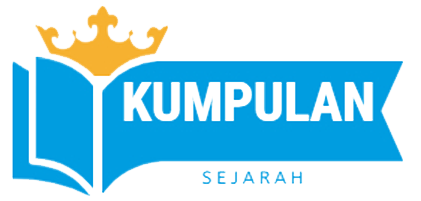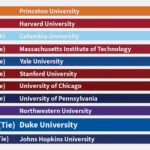Tel Aviv University news offers a vibrant tapestry of academic excellence, groundbreaking research, and impactful contributions to Israeli society and beyond. This overview delves into recent breakthroughs, student life, key partnerships, notable faculty achievements, and the university’s role in shaping the future. From impactful research in climate change to the diverse experiences of its international student body, Tel Aviv University continues to make significant strides in various fields.
We explore the university’s innovative partnerships with industry and government, highlighting the collaborative efforts that drive progress in research and education. We also showcase the remarkable achievements of its faculty and alumni, underscoring their influence on global issues. Furthermore, we examine the university’s strategic goals, its commitment to sustainability, and the perspectives of its students, providing a comprehensive view of this dynamic institution.
University Partnerships and Collaborations
Tel Aviv University’s success is significantly bolstered by its extensive network of partnerships and collaborations, spanning industry, government, and international institutions. These collaborations enrich research, enhance educational opportunities, and foster innovation across diverse fields. This section will highlight key partnerships and explore the dynamics of collaborating with different sectors.
Key Partnerships with Other Institutions
Tel Aviv University cultivates strategic partnerships to advance its research and educational goals. Three prominent examples illustrate the diverse nature of these collaborations. First, the partnership with the Weizmann Institute of Science involves joint research projects, particularly in the fields of life sciences and nanotechnology, leveraging the complementary expertise of both institutions. Second, a significant collaboration exists with the Hebrew University of Jerusalem, focused on shared resources and joint academic programs, particularly in the humanities and social sciences, fostering interdisciplinary approaches. Finally, the partnership with the Massachusetts Institute of Technology (MIT) exemplifies international collaboration, focusing on joint research initiatives in areas such as computer science and engineering, facilitating the exchange of students and faculty.
Comparison of Industry and Government Partnerships, Tel aviv university news
Tel Aviv University engages with both industry and government partners, though the nature of these collaborations differs significantly. Partnerships with industry are often focused on applied research, technology transfer, and the development of commercially viable products and services. These collaborations frequently involve joint research projects, licensing agreements, and the creation of spin-off companies. In contrast, partnerships with the government primarily focus on national research priorities, funding for research projects aligned with national strategic goals, and policy development informed by academic expertise. While both types of partnerships contribute significantly to the university’s resources and impact, the motivations and outcomes differ, reflecting the distinct goals of each sector.
Benefits and Challenges of International Collaborations
International collaborations offer substantial benefits to Tel Aviv University in research and education. These include access to diverse expertise, state-of-the-art facilities, and expanded networks for research dissemination. For example, collaborative research projects with international partners can lead to breakthroughs that would be unattainable through domestic efforts alone. Similarly, international student and faculty exchanges enrich the learning environment and foster a global perspective. However, challenges exist. These include logistical complexities, differing research cultures and administrative procedures, and securing funding for international projects. Navigating language barriers and cultural differences also requires careful planning and management. Despite these challenges, the potential benefits of international collaborations often outweigh the obstacles, making them a crucial element of Tel Aviv University’s strategic vision.
Infrastructure and Campus Facilities: Tel Aviv University News
Tel Aviv University boasts a sprawling campus characterized by a unique blend of modern architecture and landscaped green spaces. Its design reflects a commitment to fostering a stimulating and collaborative learning environment, incorporating both functional and aesthetically pleasing elements. The campus layout encourages interaction and provides ample opportunities for both individual study and group work.
The campus’s architectural features are diverse, ranging from Brutalist structures, reflecting the university’s early development, to more contemporary buildings showcasing sustainable design principles and innovative technologies. Many buildings incorporate natural light and ventilation, minimizing energy consumption and creating a pleasant learning environment. Open courtyards and plazas are strategically placed throughout the campus, offering students and faculty areas for relaxation and informal gatherings. The overall aesthetic is one of modern functionality integrated with elements of the surrounding Mediterranean landscape.
Campus Facilities Overview
The following table details the various facilities available to students and faculty at Tel Aviv University:
| Facility Type | Description | Accessibility | Example |
|---|---|---|---|
| Academic Buildings | Lecture halls, classrooms, seminar rooms, laboratories, research centers. | Students and Faculty | The Steinhardt Faculty of Life Sciences building, known for its state-of-the-art research labs. |
| Libraries and Archives | Extensive collections of books, journals, databases, and archival materials. | Students and Faculty | The central library, a multi-story building housing a vast collection of resources. |
| Student Services | Student union, counseling services, career services, health clinic, disability services. | Students | The student union building, offering various social and support services. |
| Sporting and Recreational Facilities | Gymnasiums, swimming pools, sports fields, fitness centers. | Students and Faculty | The university’s sports complex, providing a range of recreational opportunities. |
| Dining and Retail | Cafeterias, restaurants, coffee shops, bookstores, and other retail outlets. | Students and Faculty | Numerous cafes and restaurants scattered throughout the campus. |
| Administrative Offices | Departmental offices, administrative support services. | Faculty and Staff | The central administrative building, housing various university departments. |
Sustainability Initiatives
Tel Aviv University is committed to environmental sustainability and has implemented various initiatives to reduce its carbon footprint and promote environmentally responsible practices. These initiatives encompass energy efficiency measures, waste reduction programs, and the promotion of sustainable transportation options. For example, the university utilizes solar panels on several buildings to generate renewable energy and has implemented a comprehensive recycling program across the campus. Furthermore, the university encourages the use of public transportation and provides bicycle storage facilities to promote sustainable commuting. The university’s commitment to sustainability is evident in its ongoing efforts to minimize its environmental impact and create a greener campus.
Academic Programs and Departments
Tel Aviv University boasts a diverse range of academic programs, attracting students from Israel and around the globe. Its renowned faculty and cutting-edge research facilities contribute significantly to the University’s academic excellence and the popularity of its programs. The following sections detail some of TAU’s most prominent offerings.
Top Undergraduate Programs
Three consistently popular undergraduate programs at Tel Aviv University are Economics, Psychology, and Computer Science. The appeal of Economics stems from its strong faculty, practical application in various fields, and the program’s focus on both theoretical and empirical approaches. Psychology’s popularity is fueled by a growing societal interest in human behavior, combined with TAU’s leading research in cognitive science and clinical psychology. The Computer Science program thrives due to the ever-increasing demand for skilled professionals in the technology sector, and TAU’s program is recognized for its industry connections and focus on practical skills.
Comparison of Graduate Programs in Engineering and Medicine
Tel Aviv University’s graduate programs in Engineering and Medicine both offer rigorous training and opportunities for advanced research, but differ significantly in their focus and career paths. The engineering programs, encompassing diverse specializations like biomedical, electrical, and mechanical engineering, emphasize problem-solving and technological innovation. Graduates often pursue careers in industry, research and development, or academia. The medical programs, focusing on clinical practice and medical research, provide intensive training in various medical specializations. Graduates typically pursue careers as physicians, surgeons, or medical researchers in hospitals, clinics, or research institutions. While both fields require significant dedication and academic rigor, the career paths and skillsets developed differ considerably.
Departments with Strong Research Reputations
Several departments at Tel Aviv University have established strong international reputations for their research contributions. These include the Department of Physics, renowned for its work in condensed matter physics and astrophysics; the Department of Life Sciences, which excels in various biological fields, including neuroscience and genetics; and the Department of Economics, recognized for its contributions to econometrics and behavioral economics. The strength of these departments is evidenced by the numerous publications in high-impact journals, significant research grants secured, and the high caliber of faculty and students they attract.
Student Perspectives and Experiences
Tel Aviv University boasts a vibrant student body, and understanding their experiences – both the triumphs and the challenges – is crucial to fostering a thriving academic community. The following sections offer insights into the diverse perspectives shaping student life on campus.
Student life at Tel Aviv University is a multifaceted experience, shaped by a dynamic learning environment and a wide range of support services. The overall atmosphere is characterized by intellectual curiosity, collaborative spirit, and a strong sense of community. However, the realities of university life, including academic pressures and navigating a bustling city, also present their own unique set of challenges for students.
Anecdotal Evidence of Student Experiences
To gain a deeper understanding of student life, we collected several accounts directly from students, highlighting both positive and negative aspects of their time at the university.
- One student, a computer science major, praised the cutting-edge facilities and the opportunity to collaborate with renowned faculty on research projects, describing it as “an unparalleled opportunity to learn and grow professionally.”
- Another student, studying history, highlighted the strong sense of community within her department, emphasizing the support she received from both professors and fellow students during challenging coursework. She described the collaborative learning environment as “incredibly supportive and enriching.”
- Conversely, a third student, majoring in economics, expressed concern about the high cost of living in Tel Aviv and the limited availability of affordable housing near campus. This impacted her ability to fully focus on her studies, and she noted the need for improved student housing options.
- Finally, a student pursuing a degree in art history mentioned the occasional lack of clarity in certain administrative procedures, suggesting improvements to streamline processes and enhance communication with students.
The Learning Environment and Student Support Services
The learning environment at Tel Aviv University is generally characterized by a high level of academic rigor and a commitment to fostering critical thinking. A wide range of support services are available to students, designed to help them succeed both academically and personally.
These services include academic advising, tutoring, career counseling, mental health services, and disability support services. The university also offers numerous extracurricular activities, student clubs, and social events, contributing to a dynamic and engaging campus life. While resources are extensive, continued improvement in accessibility and awareness of these services remains an ongoing area of focus.
Student Testimonials: A Narrative
The experiences of students at Tel Aviv University are a tapestry woven from diverse threads. While the rigorous academic environment challenges students to push their boundaries, the supportive community fosters a sense of belonging and shared purpose. The narrative of student life is one of both individual triumphs and collective growth, reflecting the dynamic interplay between academic rigor and personal support.
From the exhilaration of groundbreaking research to the frustration of navigating bureaucratic processes, the student experience at Tel Aviv University is a complex and evolving journey. The university’s commitment to providing a rich and supportive environment for its students is evident in its extensive resources and ongoing efforts to enhance the overall student experience. However, addressing challenges such as the high cost of living and improving the clarity of administrative procedures remain crucial steps in creating an even more positive and enriching environment for all students.
Tel Aviv University stands as a beacon of academic excellence, innovation, and societal impact. Its commitment to research, its diverse student body, and its strong partnerships contribute to its significant role in Israel and the global community. The university’s ongoing efforts to foster academic freedom, address challenges, and achieve its strategic goals promise continued success and influence in the years to come. The diverse perspectives and experiences within the university create a dynamic and engaging environment for learning and growth.





